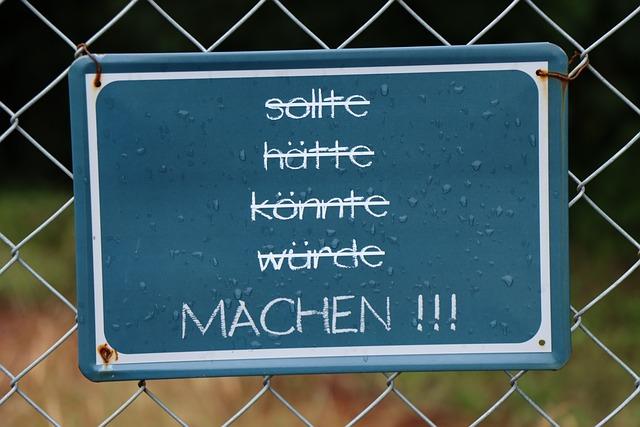When Mia unwrapped the velvet box, her breath caught. Inside lay a delicate gold bracelet, shimmering under the soft light. It was a gift from her friend, Alex, who had always been generous but never like this.
Caught between gratitude and discomfort, Mia hesitated. She knew Alex had saved for months. Instead of hiding her feelings, she took a deep breath and smiled. “This is beautiful, Alex. Thank you so much! Let’s celebrate together.”
In that moment, she realized that the true gift was their friendship, and sharing the joy made it all the more special.
Table of Contents
- Navigating the Surprise of Generosity
- Understanding the Intent Behind the Gift
- Expressing Gratitude with Authenticity
- Setting Boundaries for Future Gift-Giving
- Q&A

Navigating the Surprise of Generosity
Receiving an expensive gift from a friend can evoke a whirlwind of emotions, from joy to confusion. It’s essential to pause and reflect on the gesture rather than react impulsively. Consider the following points to navigate this unexpected situation:
- Appreciate the Thought: Acknowledge the effort and thoughtfulness behind the gift. Your friend likely chose something meaningful, and recognizing this can deepen your bond.
- Assess Your Feelings: Take a moment to understand how the gift makes you feel. Are you overwhelmed, grateful, or perhaps even uncomfortable? Identifying your emotions can guide your response.
Once you’ve processed your feelings, it’s time to respond appropriately. Communication is key in maintaining the integrity of your friendship. Here are some ways to approach the conversation:
- Express Gratitude: A heartfelt thank you can go a long way. Let your friend know how much you appreciate their generosity, regardless of the gift’s value.
- Discuss Boundaries: If the gift feels too extravagant, it’s okay to gently express your feelings. Open dialogue can help establish mutual understanding and comfort in your friendship.

Understanding the Intent Behind the Gift
When a friend presents you with an expensive gift, it’s essential to pause and reflect on the underlying motivations that may have influenced their choice. Gifts often carry emotional weight, and understanding this intent can help you navigate your response more thoughtfully. Consider the following aspects:
- Expression of Affection: Your friend may be trying to convey their appreciation or love for you, using the gift as a tangible representation of their feelings.
- Celebration of Milestones: The gift might be a way to commemorate a significant event in your life, such as a birthday, promotion, or personal achievement.
- Reciprocity: Sometimes, gifts are given as a way to balance the scales of friendship, especially if they feel indebted to you for past kindnesses.
Recognizing these motivations can help you respond in a manner that honors the relationship. It’s important to consider how your friend perceives the value of the gift, which may not always align with its monetary worth. Reflect on the following:
- Personal Significance: The gift may hold special meaning for your friend, representing shared experiences or inside jokes.
- Social Dynamics: In some circles, giving expensive gifts is a way to showcase generosity or status, which can influence how you interpret the gesture.
- Future Expectations: Consider whether this gift sets a precedent for future exchanges, and how that might affect your friendship moving forward.

Expressing Gratitude with Authenticity
Receiving an expensive gift from a friend can evoke a whirlwind of emotions, from surprise to gratitude, and even a hint of discomfort. It’s essential to acknowledge the thoughtfulness behind the gesture, as it reflects the depth of your friendship. To express your appreciation authentically, consider the following approaches:
- Personalized Thank You: Craft a heartfelt note or message that highlights what the gift means to you. Share how it will enhance your life or remind you of your friend.
- Reciprocate Thoughtfulness: While you may not be able to match the monetary value, think of a meaningful gesture that reflects your appreciation, such as planning a special outing together.
- Open Dialogue: If you feel comfortable, discuss your feelings about the gift. This can foster a deeper understanding and strengthen your bond.
Remember, the essence of gratitude lies in sincerity. It’s not about the price tag but the sentiment behind the gift. Embrace the moment and let your friend know how much their generosity means to you. By doing so, you not only honor their gesture but also reinforce the connection you share.

Setting Boundaries for Future Gift-Giving
Establishing clear boundaries for future gift-giving can help maintain the balance in your friendship and prevent any feelings of obligation or discomfort. Start by having an open conversation with your friend about your feelings regarding gift exchanges. You might say something like, “I truly appreciate your generosity, but I want to ensure we keep our friendship focused on experiences rather than material gifts.” This sets the stage for a mutual understanding and allows both of you to express your preferences without any pressure.
Consider suggesting alternative ways to celebrate special occasions that don’t involve expensive gifts. You could propose ideas such as:
- Shared experiences: Plan a day out together, like a hike or a visit to a museum.
- Homemade gifts: Encourage each other to create something personal, like a scrapbook or a handwritten letter.
- Charitable donations: Suggest contributing to a cause you both care about in lieu of gifts.
By focusing on these alternatives, you can foster a deeper connection that transcends materialism, ensuring that your friendship remains strong and genuine.
Q&A
-
Should I feel obligated to give a gift in return?
No, you are not obligated to reciprocate immediately. A thoughtful thank-you note or message expressing your gratitude is often sufficient. If you wish to give a gift later, that’s perfectly fine!
-
How can I express my gratitude for the gift?
Consider writing a heartfelt thank-you note or message. You can also express your appreciation verbally when you see them next. Sharing how the gift made you feel can make your gratitude more meaningful.
-
What if I can’t accept such an expensive gift?
If the gift feels too extravagant, it’s okay to gently communicate your feelings. You might say something like, “This is so generous of you, but I feel uncomfortable accepting something so expensive.” This opens a dialogue without hurting their feelings.
-
How should I handle the situation if I don’t like the gift?
Focus on the thought behind the gift rather than the item itself. Thank your friend sincerely and, if appropriate, consider discussing your preferences in a future conversation. If necessary, you can discreetly exchange or donate the gift without mentioning it to them.
navigating the delicate waters of gift-giving requires thoughtfulness and gratitude. Embrace the gesture, communicate openly, and let your friendship flourish. After all, it’s the bond that truly counts, not the price tag.

大家好,我是彼得潘,專業的手法身體治療師。我喜歡探索和研究各種主題,並透過與人工智慧的合作分享專業、實用、有趣的文章。我們定期進行人工審核,以確保內容的準確性。如果您發現文章中有任何不準確的地方,請隨時與我們聯繫,我們會及時糾正。您可以透過 [email protected] 與我們聯繫。



